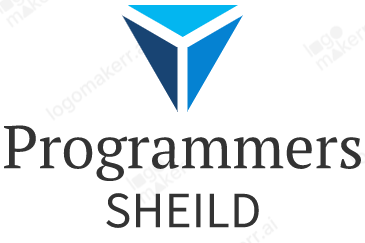C Programming Online || Introduction to C programming
Introduction:
Are you eager to learn C programming online? Look no further! In this blog post, we will explore the world of C programming, focusing on the benefits of taking an online course to master this foundational language. We will guide you through setting up your development environment, understanding the basic structure of a C program, and writing and running your first "Hello, World!" program. Whether you are a beginner or an experienced programmer, embarking on a C programming online course can take your coding skills to new heights.
Why Learn C Programming Online?
Taking a C programming online course offers numerous advantages for aspiring developers:
Flexibility and Convenience: Online courses allow you to learn at your own pace and fit studying into your schedule. Whether you're a full-time student or a working professional, you can access course materials and lectures anytime, anywhere.
Comprehensive Curriculum: Online courses often offer well-structured and comprehensive curricula, covering everything from the basics to advanced topics in C programming. This ensures you receive a complete and in-depth understanding of the language.
Interactive Learning: Many online courses incorporate interactive elements such as quizzes, coding exercises, and projects. These hands-on activities enhance your learning experience and help solidify your knowledge through practical application.
Setting Up the Development Environment:
Before diving into C programming online, you need to set up your development environment. Here's a step-by-step guide:
Choose a compiler: I recommend Dev C++, this compiler is not only for c but also for c++.This compiler is easy to use. If you are going to start your programming journey with C, this compiler is best for you.
Download DevC++ here: Click here
Access Online Compilers: Online compilers provide a platform for writing and executing C programs directly from your browser. Websites like OnlineGDB, JDoodle, and Programiz offer such services.
Understanding the Basic Structure of a C Program:
To grasp the essentials of C programming, it's crucial to understand its basic structure. A typical C program consists of the following elements:
Preprocessor Directives: These directives, identified by the # symbol, provide instructions to the preprocessor and help modify the source code during compilation.
Functions: C programs are composed of one or more functions. The main() function serves as the entry point, where program execution begins.
Variables and Data Types: C is a statically typed language, requiring explicit declaration of variables and their data types before use. Common data types include int, float, char, and double.
Statements and Control Flow: C programs execute statements sequentially. Control flow structures like conditionals (if-else), loops (for, while, do-while), and switch-case allow you to control the program's flow based on certain conditions.
Writing and Running Your First "Hello, World!" Program:
Let's put our knowledge into practice by writing and running a "Hello, World!" program in C:
C
To run the program:
Access your compiler ‘Dev C++’ or online compiler.
Create a new C file and paste the code into the editor.
Compile and run the program using the provided options(F11 in Dev C++). The output, "Hello, World!", should be displayed.
Conclusion:
By embarking on a C programming online course, you open the doors to a world of coding possibilities. This blog post highlighted the benefits of learning C programming online, from flexibility and convenience to comprehensive curricula and interactive learning experiences. We explored setting up the development environment, understanding the basic structure of a C program, and writing and running your first "Hello, World!" program. Start your journey now, and unlock the full potential of C programming through online courses that cater to both beginners and experienced developers. Happy coding!
------------------------------------------------------------------------------------------------------------------------


.png)
0 Comments